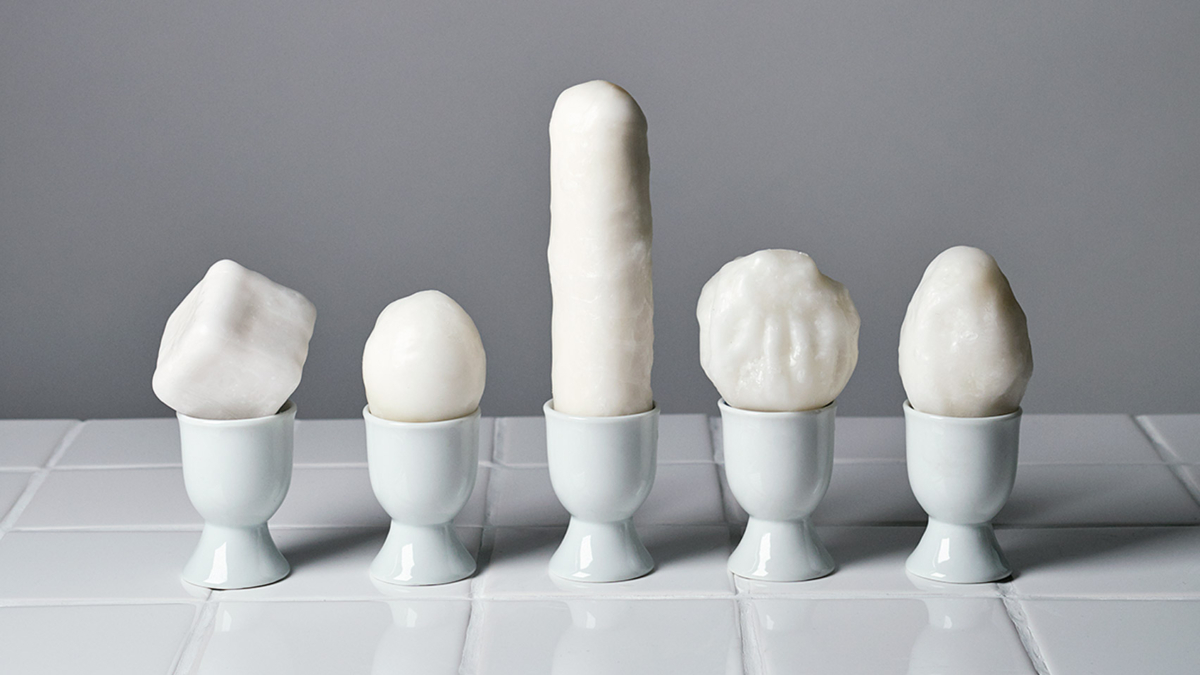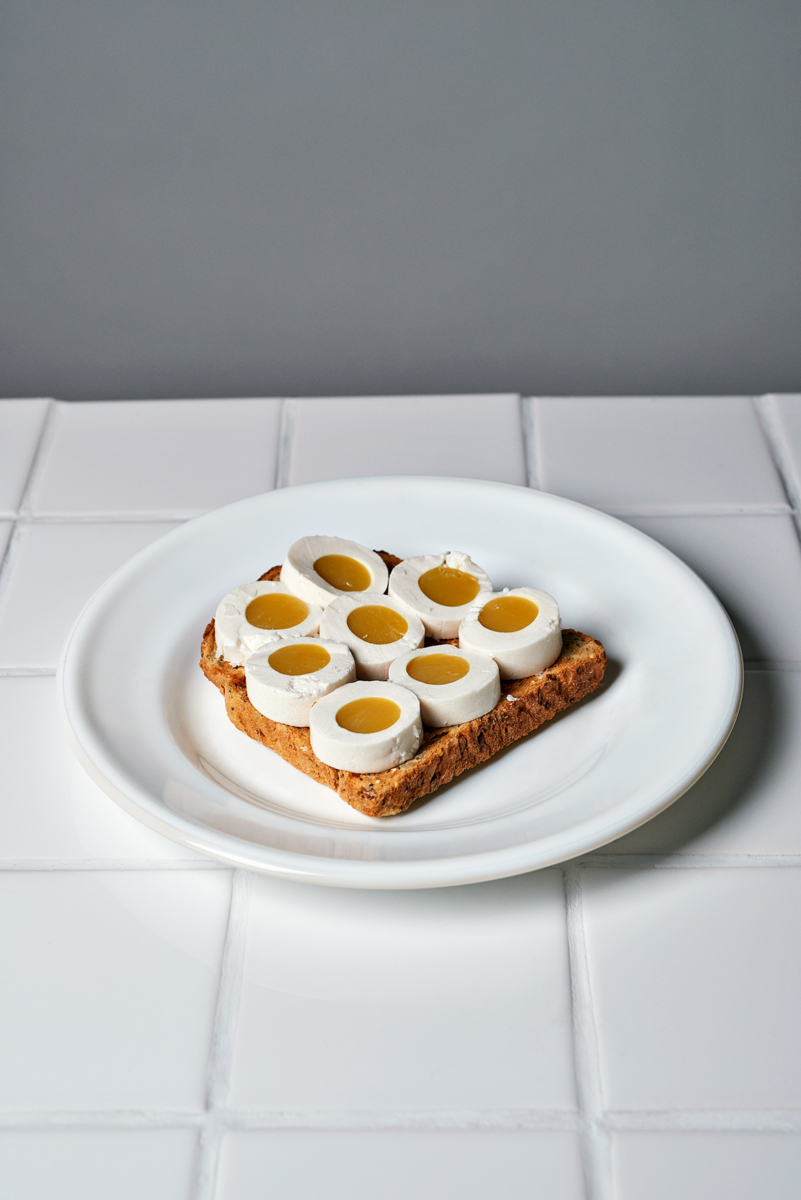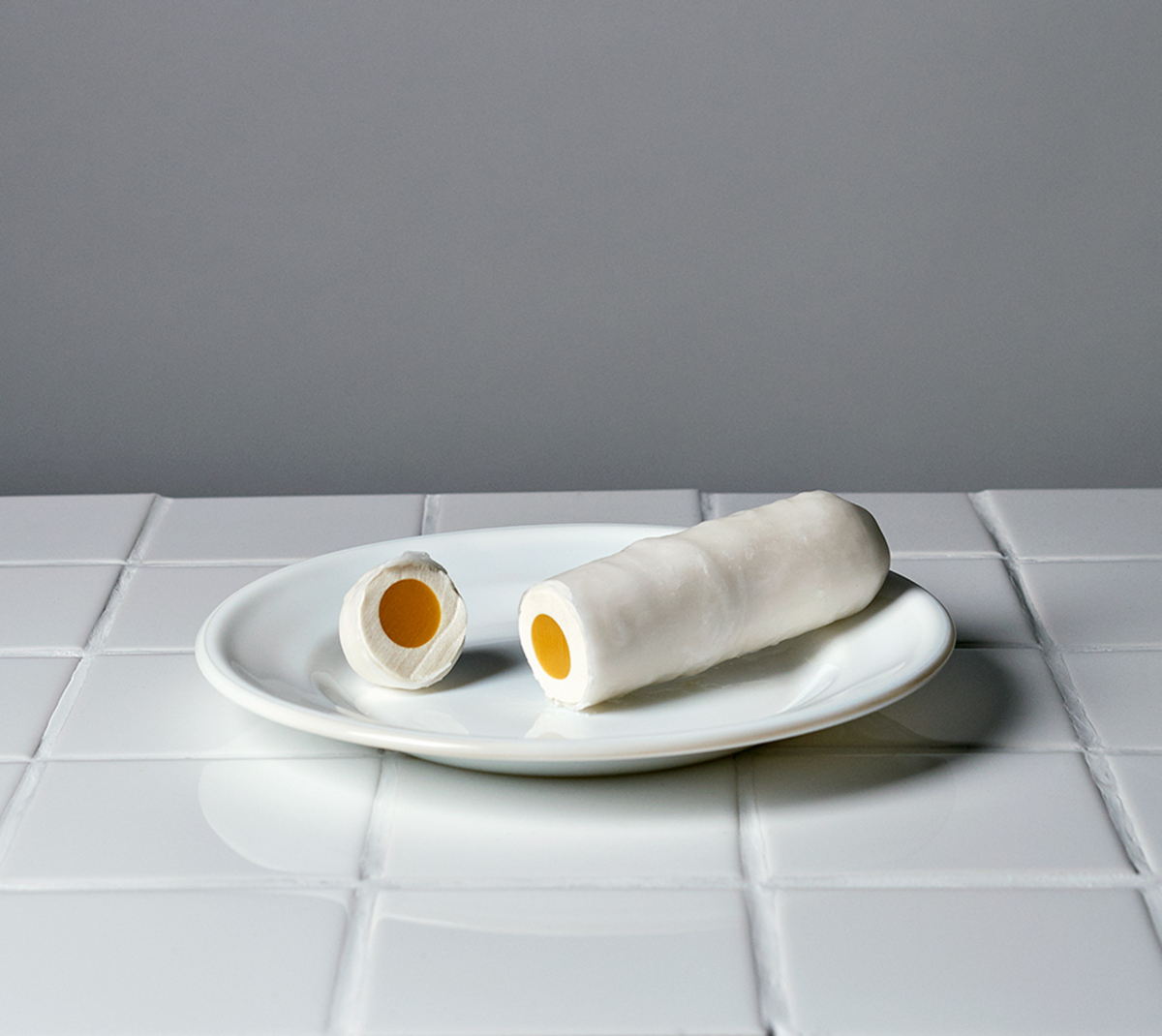
Created as part of a project titled An Egg Without a Chicken, Annie Larkins’ plant-based egg aims to highlight the unethical and unsustainable industrial farming practices of chicken eggs.
“In the face of climate change, we need to move away from intensive animal agriculture and explore alternative sources of protein,” said Larkins.
“There is currently a growing interest in veganism, and demand for plant-based alternatives is at an all-time high,” added Larkins. Whilst egg alternatives already exist – either plant-based or grown synthetically in a laboratory – they neglect the essence of what an egg is.”

Featuring a yolk and white with a shell, the plant-based egg is said to have a similar nutritional value and taste of a chicken egg.
Unrestricted to the biological limits of a hen, the shape of the eggs are experimented with and altered.

To create the plant-based eggs, an ingredient list composed of pea protein isolate, Kala Namak salt and algae-derived alginate acid is used.
The pea protein isolate provides the nutrients, while the Kala Namak salt is for replicating the taste of a chicken egg. The yolk is made from alginate.
The shell itself is made by either dipping and layering the egg in melted plant-based wax or by creating and melting together two halves of a shell.

The plant-based egg is perfect for vegans and vegetarians who would like to enjoy the tastes of an egg.
“Of course there are limits to what is worth imitating – and an egg without a chicken is definitely reaching the absurd – but I think that it’s easier to persuade someone to make a change if you provide an alternative rather than saying to simply do without,” Larkins told Dezeen in an interview.
“Some people who choose to be vegan still enjoy the experience of eating meat, and should be allowed a meat-like experience without having to defend themselves,” stated Larkins.
“Human desire to consume meat and animal products runs deep in cultures globally, and having an alternative that allows for an easy switch to plant-based products seems like a good thing to me,” added Larkins.
“Throughout the experimentations, it became clear that alternatives are not automatically better,” noted Larkins. “Some substitutes come with their own environmental impact and compromises in flavour, efficiency and form.”






2 comments
Comments are closed.